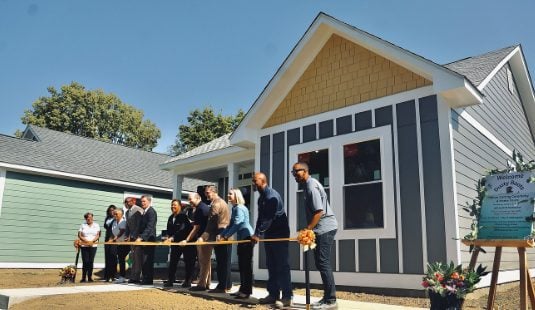Pro Tips on Achieving Affordable Homeownership and Financial Stability
Pro Tips on Achieving Affordable Homeownership and Financial Stability
Blog Article
Inexpensive Homeownership Options for First-Time Homebuyers
As the housing market proceeds to develop, newbie buyers face one-of-a-kind obstacles in protecting budget friendly homeownership alternatives. These campaigns not only facilitate homeownership however also foster community security and financial growth.
Federal Government Assistance Programs
Federal government help programs play an important duty in making homeownership possible for lots of people and family members. These programs intend to alleviate the economic problem connected with purchasing a home, especially for new purchasers. By providing financial assistance, gives, and tax obligation rewards, government efforts aid bridge the gap between climbing real estate prices and the purchasing power of prospective house owners.
Numerous programs are available at the government, state, and local levels. The Federal Real Estate Management (FHA) gives insurance on car loans, permitting lenders to offer a lot more beneficial terms, such as reduced down payments and reduced rate of interest rates. In addition, state and regional governments typically have their own campaigns, which may include down settlement aid programs, property buyer education and learning training courses, and desirable home mortgage terms.
These programs are designed to deal with the one-of-a-kind challenges faced by reduced- to moderate-income households, consisting of limited savings and credit report history. By cultivating an atmosphere where homeownership is extra easily accessible, entitlement program programs not just sustain private goals yet additionally add to neighborhood security and economic growth. Understanding and utilizing these sources can significantly boost the potential customers of effective homeownership.
Low-Down-Payment Home Mortgages
For several hopeful property owners, low-down-payment home loans offer a feasible pathway to homeownership, particularly in today's difficult housing market. These home mortgage alternatives normally require deposits ranging from 3% to 5%, making it less complicated for novice customers to get in the market without the problem of saving for a significant down payment.
Different loan providers provide low-down-payment programs, consisting of standard lendings backed by Fannie Mae and Freddie Mac, in addition to government-backed options like FHA car loans. These mortgages are developed to suit people with limited financial savings while still providing competitive passion rates. Notably, they allow purchasers to retain more cash for various other crucial costs, such as relocating prices, home inspections, and potential renovations.
However, prospective homeowners should be conscious of the compromises related to low-down-payment home mortgages. A smaller deposit may lead to higher monthly settlements and the necessity of personal home loan insurance policy (PMI), which secures loan providers in situation of default. It is essential for new customers to perform extensive research study and seek advice from with mortgage professionals, guaranteeing they pick a low-down-payment option that aligns with their long-lasting monetary goals.
First-Time Property Buyer Grants
Many novice property buyers discover that gives can dramatically ease the monetary problem of purchasing a home, complementing low-down-payment home mortgage alternatives. These gives, typically provided by state and neighborhood governments or charitable organizations, provide economic assistance that does not require settlement, making them an appealing alternative for those going into the real estate market.
Qualification for novice buyer gives usually relies on income, credit reliability, and the purchase rate of the home. Many programs are developed to aid low- to moderate-income families, making sure that assistance gets to those that need it most. The application process frequently includes documentation of economic status, buyer education and learning programs, and occasionally even official statement a commitment to remain in the home for a particular duration.
The quantity of assistance varies commonly, with some grants offering a number of thousand bucks to aid cover shutting prices or down repayments. Researching available grants in your area is necessary, as programs regularly transform and may have specific requirements. By leveraging these funds, novice property buyers can make homeownership extra accessible, ultimately achieving their desire for owning a home while reducing the preliminary monetary strain.
Innovative Community Initiatives
Ingenious neighborhood initiatives are playing an important function in expanding inexpensive homeownership options for citizens. These efforts typically include joint efforts between city governments, charitable organizations, and economic sector stakeholders to create lasting housing solutions customized to area demands.
One significant method is the establishment of area land trust funds (CLTs), which enable locals to acquire homes while the land stays possessed by the trust fund. This design helps preserve affordability gradually and stops speculative cost increases. In addition, CLTs usually supply educational resources and support solutions to empower new property buyers.
Another efficient initiative is the advancement of mixed-income housing jobs, which blend budget-friendly systems with market-rate homes. This technique fosters inclusive neighborhoods and lowers the preconception frequently related to low-income real estate. Moreover, city governments are increasingly supporting zoning reforms to promote the building of accessory dwelling units (ADUs), which can provide extra rental revenue for house owners while increasing housing accessibility.

Tips for Budgeting and Saving

Next, develop a dedicated financial savings account particularly for your future home acquisition. Purpose to save a percent of your income constantly, ideally 20% or even more, to construct a considerable deposit. Make use of automation tools, review such as direct down payment or automatic transfers, to make saving much easier and more consistent.
Furthermore, think about taking on the 50/30/20 rule: assign 50% of your earnings to requirements, 30% to desires, and 20% to financial savings and financial obligation payment - Affordable Homeownership. This approach advertises well balanced economic health

Conclusion
In recap, cost effective homeownership options for newbie buyers encompass different sources such as entitlement program programs, low-down-payment mortgages, and gives. These initiatives not just help with entry into the housing market yet likewise promote community stability and financial advancement. By leveraging these financial tools, individuals can browse the intricacies of homeownership, ultimately contributing to a more equitable real estate landscape. Proceeded support and understanding of these visite site programs are important for enhancing availability to homeownership chances.
As the real estate market proceeds to develop, novice property buyers encounter distinct difficulties in safeguarding economical homeownership alternatives. By promoting an atmosphere where homeownership is extra easily accessible, government help programs not only sustain individual desires yet additionally add to neighborhood stability and financial development. By leveraging these economic resources, first-time buyers can make homeownership extra obtainable, eventually accomplishing their dream of owning a home while mitigating the preliminary monetary strain.
In recap, inexpensive homeownership choices for novice homebuyers encompass different resources such as government help programs, low-down-payment home loans, and grants. By leveraging these monetary tools, individuals can navigate the complexities of homeownership, ultimately contributing to an extra fair real estate landscape.
Report this page